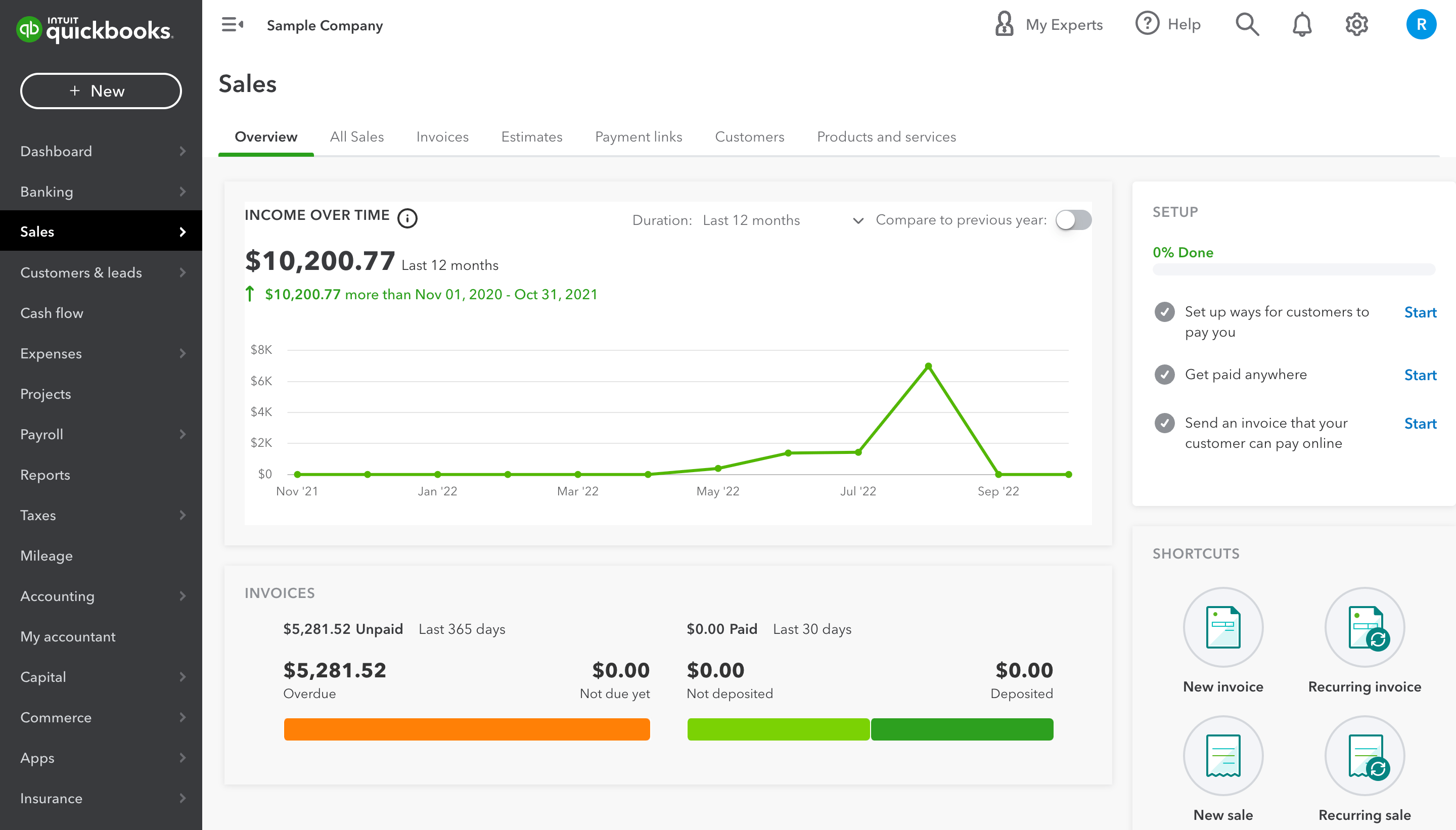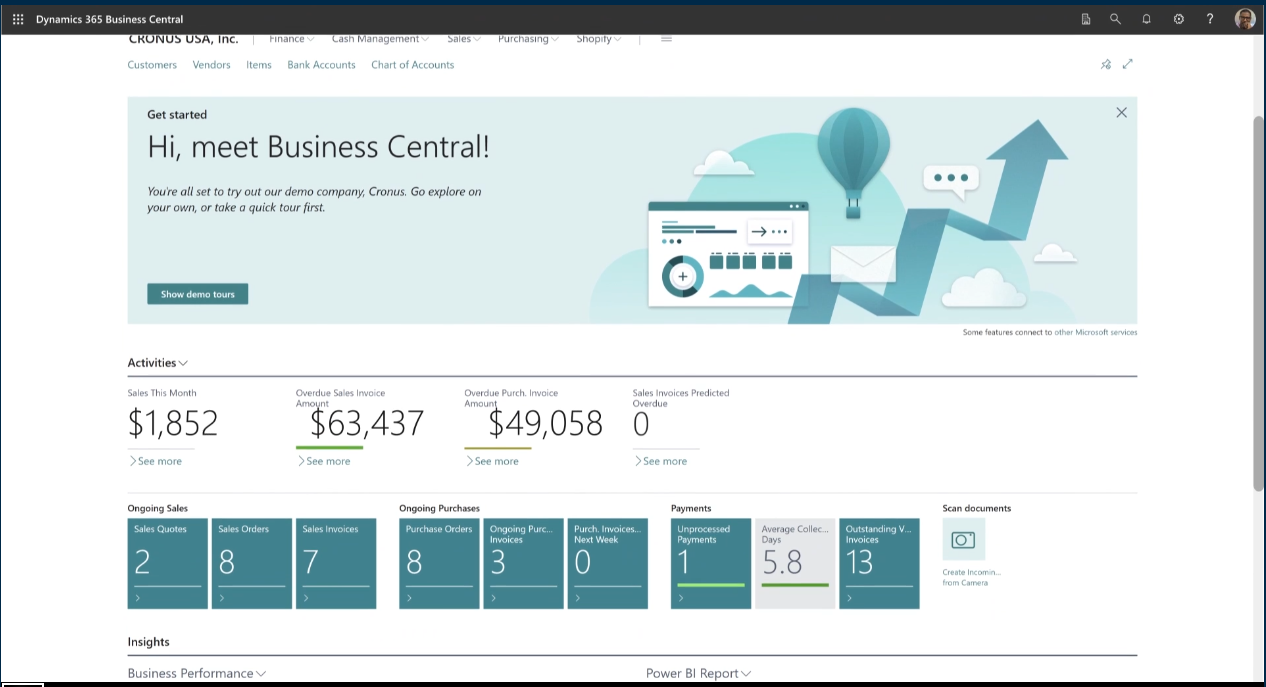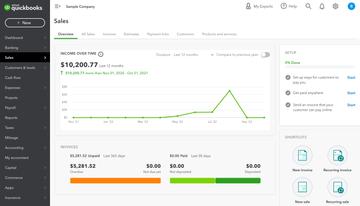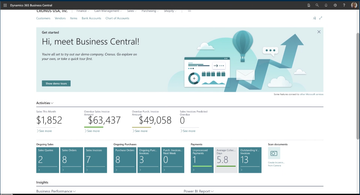Dynamics 365 Business Central vs. QuickBooks Online


-
Price Range
$ $ $ $ $$ $ $ $ $
- Starting Price $37/month
- Client OS Web
-
Price Range
$ $ $ $ $$ $ $ $ $
- Starting Price $70/user/month
- Client OS Web
Our editorial staff has reviewed and tested Microsoft Dynamics 365 Business Central and QuickBooks Online. We’ve demoed these two solutions, and now we’re sharing our hands-on experience to guide you in your software search.
QuickBooks Online Overview
When it comes to features, QuickBooks Online is known for its intuitive user interface, built-in payment gateway, and over 750 integrations with third-party apps. It offers seamless collaboration with external accountants, and its scalability makes it a popular choice among businesses of various sizes. However, it might require some accounting knowledge to use effectively.
QuickBooks Online offers customizable invoicing, extensive pre-built and custom reports, and automatic exchange rates. However, it’s comparatively more expensive and lacks industry-specific features like manufacturing support.
Microsoft Dynamics 365 Overview
Microsoft Dynamics 365 Business Central offers a similar interface to MS Word and Outlook, creating quotes, orders, and invoices in Outlook. However, it’s not ideal for complex manufacturing needs, and its third-party integrations can be clunky.
Business Central stands out with its combined ERP and CRM capabilities. It integrates seamlessly with Microsoft applications and supports multi-currency and multi-language operations. The platform also automates recurring tasks like invoicing and reporting, but it may require extensive training to fully leverage its features.
Target Market Comparison
While both products cater to a broad range of businesses, there are slight differences in their target markets. QuickBooks Online is the most popular accounting software in the market. It’s designed for small to larger organizations, ranging from 10 to 5,000 employees. It’s favored in the accounting, information technology, and professional services industries.
In contrast, Business Central is a cloud-based ERP designed to streamline operations, from sales to financials. It’s best suited for smaller companies and midsize businesses, ranging from 10 to 200 employees. Industries that find this platform most beneficial include manufacturing, retail, healthcare, financial services, nonprofits, and professional services.
Microsoft Dynamics 365 vs QuickBooks Online: Which is Better for Most Businesses?
For most businesses, we recommend QuickBooks Online due to its widespread use, over 750 third-party integrations, and custom invoicing capabilities. It’s also more scalable, making it a better fit for growing businesses. However, if your business heavily relies on Microsoft applications, Dynamics 365 might be a more seamless fit.
To learn more about ERP solutions, check out our round-up of the best ERP software on the market.



